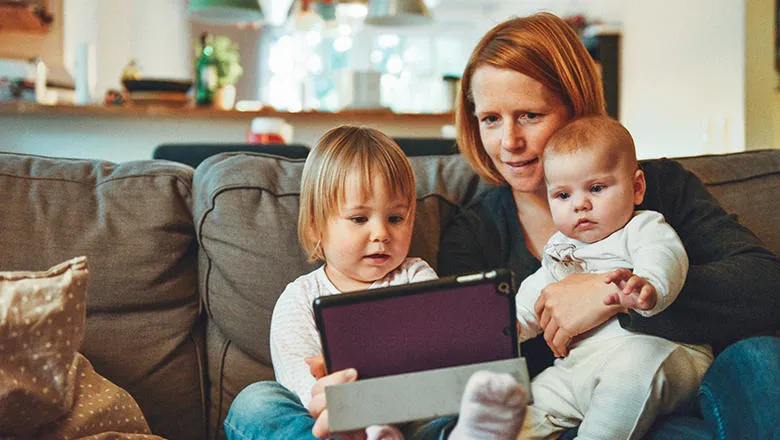Watching families and loved ones being reunited through video calls has been incredibly moving. In intensive care, lives often hang in the balance. It has meant more than anything for relatives to see their parent, sibling, partner or child at such a critical time. We are incredibly grateful to the large number of people across many different organisations who made this possible. We are continuing to develop the support Life Lines can offer to ensure patients, families and NHS teams stay connected.
Professor Louise Rose and Dr Joel Meyer, Life Lines Project Leads
23 June 2020
Life Lines has enabled more than 25,000 virtual hospital visits from family
More than 1,000 tablets are connecting families with their loved ones through the COVID-19 pandemic.

The Life Lines project has now delivered more than 1,000 tablets to connect families with their loved ones through the COVID-19 pandemic.
Life Lines was developed from an idea to a UK-wide initiative in just four weeks, with the support of King’s Health Partners (which the university is part of). Since its launch, the project has been scaled up rapidly to support hundreds of families who are unable to visit loved ones in intensive care units due to restrictions put in place through this pandemic.
In April 2020, Life Lines began delivering 4G-enabled tablets to intensive care units, enabling virtual visiting for families. Two months on, the project has now distributed more than 1,100 devices to 174 NHS organisations, spanning from Cornwall to the Orkney Islands.
A total of 27,000 calls have been made through Life Lines devices, accumulating a call time of nearly 200,000 minutes. In addition to allowing patients to speak to their relatives, these calls, or virtual visits, also give families the opportunity to meet the clinical team providing care, ask questions and better understand the environment their loved one is being treated in.
Having experienced Life Lines in action, a medical lead in ICU stated: ‘This has proved invaluable at this time and allowed families to keep in touch with their loved ones when they were not able to visit them.’
Similarly, a junior doctor reflected on their experience, saying: ‘Over the past few weeks, I have noticed that the Life Line tool has had a really positive impact on patients and relatives on ICU and think it was a really good initiative.’
The rapid development of the Life Lines project would not have been possible without generous donations from the public, major philanthropy and technology partners. Every additional £500 raised provides a tablet, software and 4G connectivity for 12 months to an NHS hospital.
With more than £2 million now raised, the Life Lines team are continuing to improve the support based on feedback from hospital teams. The Life Lines website is continuing to be updated with support for staff through written guidance and e-learning, and the team are sharing lessons from the rapid implementation, including through journals and webinars, undertaking evaluations and research, and forming a clinical champions network to continue to share best practice.

